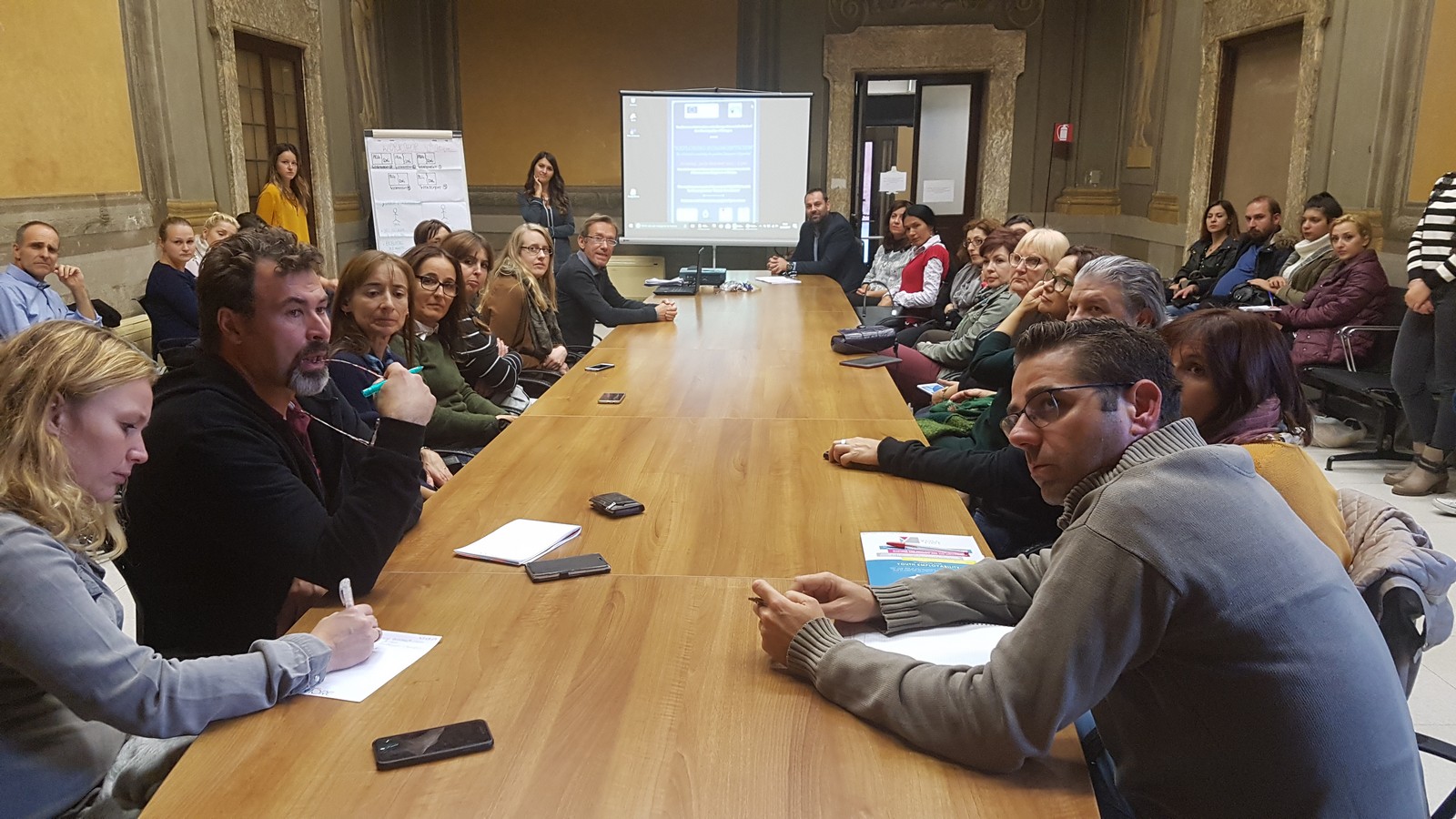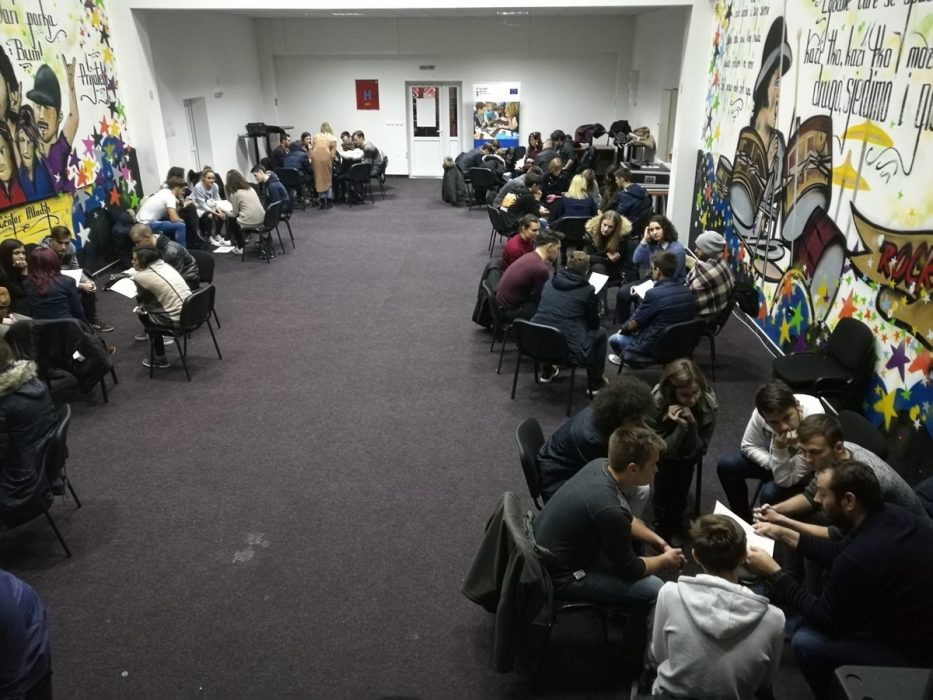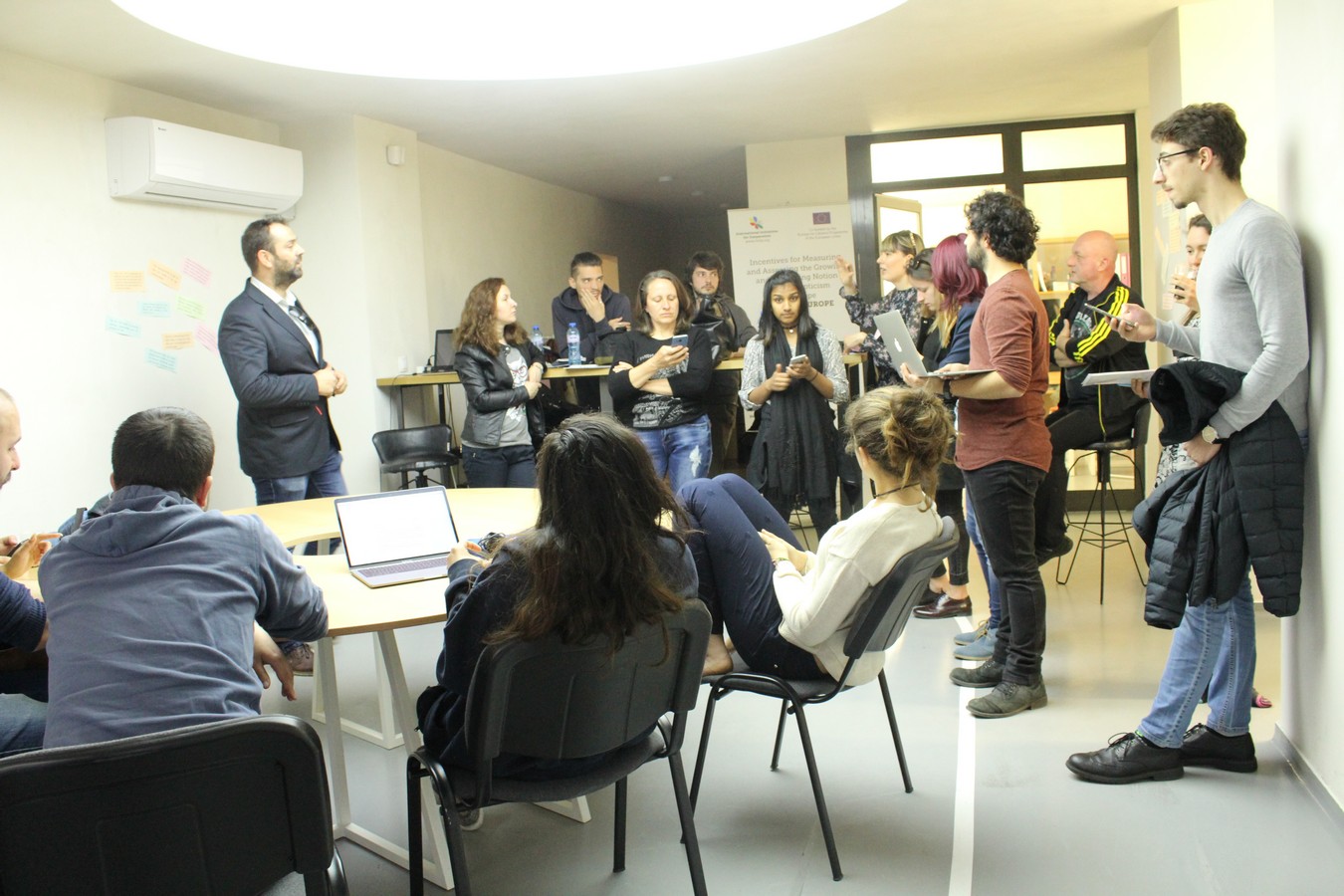-

International Seminar Bologna, Italy
This International Seminar was held in Bologna, Italy from 28th till 31st October 2017. During the seminar the international participants …
-

International Seminar Slavonski Brod, Croatia
This International Seminar was held in Slavonski Brod, Croatia from 30th of November till 03rd December 2017. During the seminar …
-

International Seminar in Bremen, Germany
This International Seminar was held in Bremen, Germany from 21st till 24th February 2018 During the seminar the international and …
-

International Tribune in Sofia, Bulgaria
The International Tribune was organised as the last international event in the City of Sofia, Bulgaria from 3rd till 6th …
Why IMAGINE Europe project?
Euroscepticism is one of the biggest challenges for the architects of the new Europe. Euroscepticism has gained ground in Member States to the point of redrawing political maps and disrupting traditional political divisions. Euroscepticism has become a reality that requires further examination, debate and understanding. In the beginning, the eurosceptics were the ones with nationalist or sovereignist feelings that didn’t want to be part of the big community that the European Union proposed. But right now the term can be used for referring to the people that are upset with the EU.
With the EU in existence for more than half a century, there is a great deal of experience that can be examined in order to see how well its different policies and institutions work. Euroscepticism is the opposite not only of endorsing policies because of an ideological commitment to an ever-closer union, but also of the dogmatic rejection of every new EU policy because of faith in a notion of sovereignty that is no longer practicable in a world of interdependencies.
Euroscepticism is stronger in northern EU countries. Usually, both countries outside the EU, as well as those already member states, focus on various disadvantages of integration. In the United Kingdom, Sweden and Denmark, the project of an economic and monetary union is the main plot for eurosceptic attitude. Initially, Euroscepticism has been perceived as a British syndrome. Nowadays, however, this syndrome overwhelmed the whole continent. For example, in Sweden and in the UK, only three out of ten citizens of this country agree that membership brings benefits. Germany with its external policy supporting the refugees to an extent that threatens the unity of the Union and Greece with its deep internal crises accompanied by social protests and political mistrust are also part of the scope of our project. Italy represents the more moderate EU Member States also torn by internal problems and economic crises. Poland is representative for the Member States of Central Europe characterizing totally different European context. Bulgaria as one of the newest member and quite positively biased towards the EU is of particular interest for the project research.
Therefore we have included in our project partners from representative EU Member States covering the line from one extreme of Europe to the other.
The project ensured a space for interaction and dialogue between Eurosceptics and Europhiles during the process of information campaigns and debates and international seminars.
Each partner has organised local events stimulating the debate on local level through showing the collected success stories of people that have “benefited” from the European Union and demonstrating to Eurosceptics that EU can give us a better life, freedom of speech and freedom of movement in Europe.
Through developing an online video book within our project as an innovative tool for sharing and presenting benefits and best practices of the EU, we are trying to decrease the increasing influence of Euroscepticism and Europhobia in the European Community. The project offered space and opportunity for the participants to reconsider the European values thus fostering EU citizenship and civic participation. The project has encouraged the debate between the EU citizens and stimulated them to reflect on the EU policies and their involvement in the democratic processes in Europe on all levels.
